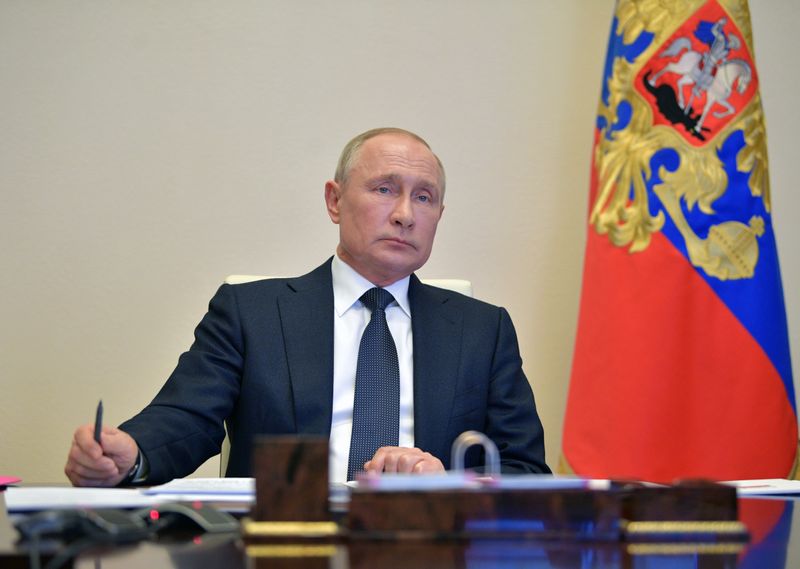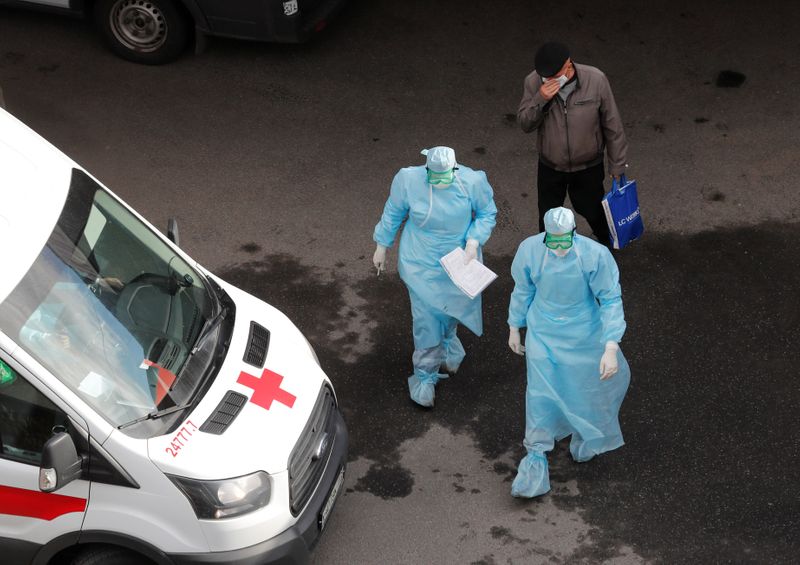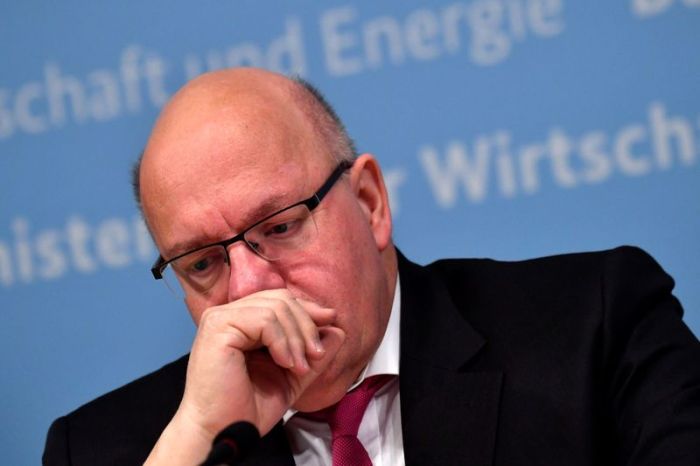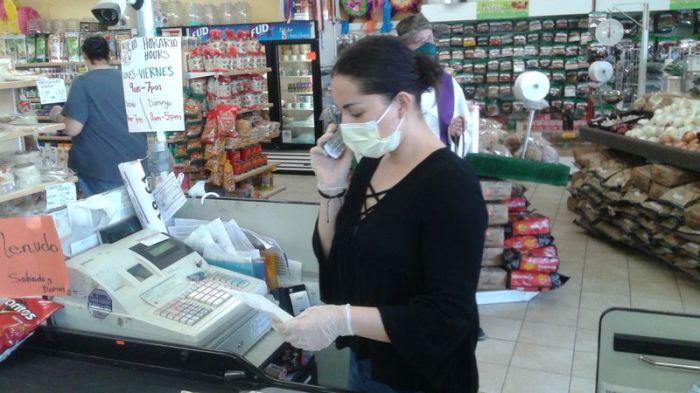MOSCOW (Reuters) – President Vladimir Putin extended coronavirus lockdown measures for another two weeks on Tuesday, while ordering his government to begin preparations for a gradual lifting of the curbs from mid-May.
Although Putin said the number of confirmed cases of the novel coronavirus was now stabilising, he told Russians to expect the worst days of the outbreak were still ahead.
The number of new cases in Russia rose by a record 6,411 on Tuesday, bringing its nationwide tally to 93,558. The number of deaths rose by 72, also a daily record, taking the total number of fatalities to 867.
The figures mean Russia now ranks eighth worldwide for the number of confirmed cases, though it has so far recorded far fewer deaths than many of the most hard-hit countries.
“We are now nearing a new, perhaps the most intense stage in the fight against the pandemic,” Putin said, addressing heads of Russia’s 85 regions via a video-conference.
He extended the lockdown through May 11, the end of a period of back-to-back public holiday weekends. Putin asked Russians to avoid large gatherings during the May holidays, normally a time when people travel and hold outdoor barbecues.
He ordered his government to prepare guidelines for the gradual easing of curbs from May 12, and to deliver a fresh emergency economic support plan, the third so far, to soften the impact of the virus. He did not provide details.
Russia has already spent nearly 3 trillion roubles ($40 billion) on emergency support, proposing that big banks step in with aggressive state debt purchases to fund fresh budget demands to cover the hit from the coronavirus.
Data from Russia’s leading search engine, Yandex, suggested that residents of Moscow were becoming more lax in observing the lockdown. Its self-isolation index, compiled from activity such as use of maps and taxis, fell as low as 3.0 on a five point scale on Tuesday, down from earlier in April.
The capital has been worst hit by the virus and has imposed the toughest restrictions, requiring residents to download digital passes to go out. More than 20 other regions plan to introduce similar passes.
(Reporting by Gleb Stolyarov, Alexander Marrow, Darya Korsunskaya, Vladimir Soldatkin and Polina Devitt; Writing by Katya Golubkova; Editing by Gareth Jones and Peter Graff)




















